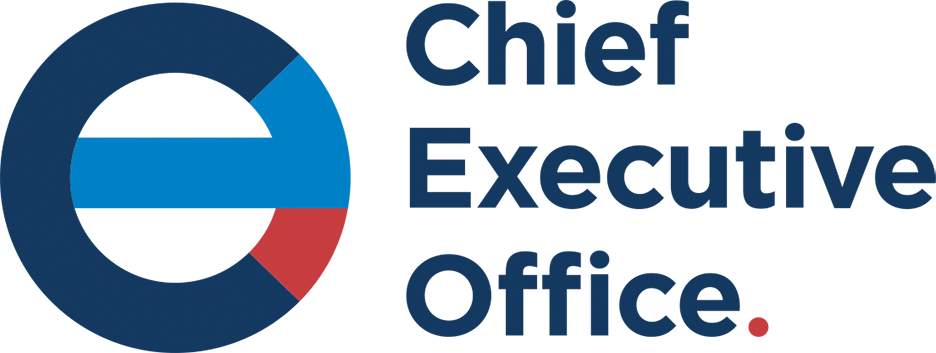About us
The mission of the Women and Girls Initiative is to establish Los Angeles County as a leader in creating opportunities and improving outcomes for all women and girls. We support departments in implementing the United Nations Convention on the Elimination of All Forms of Discrimination Against Women ( by applying a gender lens when the County acts as an employer, a service provider, and a partner. Adopting CEDAW embedded the principles of GIA into County code, systematically working to ensure the rights of women and girls. The ordinance memorializes the work of the Gender Impact Assessments (GIA) implemented by WGI to prevent the discrimination against women and girls throughout Los Angeles County.

How We Are Working Towards Gender Equity
Under the direction of the Executive Director and the WGI Governing Council, which was appointed by the Board of Supervisors and composed of 15 experts from across the County, WGI examined the systemic issues that lead to inequitable gender outcomes. To ensure that all recommendations were community led, WGI engaged in extensive community outreach, conducted research, and recommended changes designed to improve the quality of life for women and girls in the county. Some of the research conducted by WGI was as follows:
- A countywide study of the unique ways in which women and girls are impacted by policies, programs, services, collaborations, and other actions undertaken by the County.
- A thorough assessment of the County’s recruitment, hiring, retention, promotion, testing, evaluation, and other Department of Human Resources policies to ascertain any disparate impacts they may have on women.
- A thorough assessment of the County’s abilities and deficits in ensuring gender equity, including an analysis of each Department’s programmatic impacts on women and girls in the County.
Strategic Plan

The Women and Girls Initiative Strategic Framework
Strategic Plan: Phase I
Phase I of the WGI consisted of three parts: 1) creating a toolkit to guide data collection and analysis, including governance; 2) building awareness and engagement around using a gender lens throughout the County; and 3) developing a data inventory for the County to track gender equity in internal operations and service provisions.
During Phase I, the WGI was led by a Governing Council made of up 15 members with 3 from each Supervisorial District. Additionally, an interdepartmental workgroup was established with the goal of facilitating ongoing discussions around how a Gender Impact Assessment (GIA) works and how it could best be used by individual departments.
We ensured that every County department met their Management Appraisal Performance Plan goal to implement at least one strategy strengthening their capacity to collect and track data outcomes by gender. This milestone enables efforts to increase women representation in nontraditional careers and management-level roles, ensure equitable distribution of contracts awarded and reduce disparities in health and mental health care. It also laid the groundwork for the future implementation of the Gender Impact Assessment (GIA).
WGI produced the following reports during Phase I:
Strategic Plan: Phase II
In March 2021, the WGI began the development and roll-out of a County-wide Gender Impact Assessment (GIA) to implement CEDAW and advance gender equity. The GIA is a methodology and tool that helps the County improve its understanding of people’s different needs, experiences, and opportunities – which may vary based on gender, race/ethnicity, age, and other social-demographic variables. So far, WGI has coached three cohorts on their gender equity goals process, resulting in a total of 20 departments including: Child Support Services, Children and Family Services, Human Resources, Parks and Recreation, Public Works, Internal Services, Los Angeles County Development Authority, Military & Veteran Affairs, Aging & Disabilities, Consumer and Business Affairs, Economic Opportunity, Public Social Services, Fire, Public Library, Public Health, Mental Health, Health Services, Beaches & Harbors, Arts & Culture, and Animal Care & Control.
See our GIA Fact Sheet to learn more.
The Woman and Girls Initiative Strategic Framework was developed during Phase I to address issues raised in the 2016 Board Motion that created WGI. Specifically, the Motion directed WGI to use a gender lens in three important areas: 1) the County as an employer, 2) as a provider of services, and 3) as a leader. Specific goals and objectives were determined based on data, community convenings, experience of Governing Council members and/or previous issues raised in the county.
Town Hall Series: Covid-19 Impact on Women and Girls
2020-2021
WGI led a series of town hall meetings across the county and made recommendations to help track the County’s efforts during COVID-19, and the economic recovery plan that followed. The following questions emerged and helped shape the ongoing work of WGI:
- What is the Future of the Los Angeles County Economy and the Impact on Economic Mobility for Women and Girls?
- How Can the County Support Women 55+?
- What Lessons Have the County Learned About Intimate Partner Violence and its Impact on Homelessness for Women and Girls?
- What Does a Post COVID-19 Los Angeles Look Like for Women and Girls and What is the Role of County Government?
Gender Impact Assessments
In accordance with the Los Angeles County Board Motion on implementation of the Gender Impact Assessment (GIA) that passed on November 15, 2022, all County departments must complete the GIA, develop gender equity goals, and report back to the Board of Supervisors during the annual Management Appraisal and Performance Plan (MAPP) evaluation period. The County’s adoption and use of Gender Impact Assessments is critical for implementing CEDAW. With the County employing over 100,000 people and serving a population of ten million, this is the largest undertaking of the GIA in the country and requires ongoing training and investment. By June 2024, all County departments will have completed the GIA training and identified goals that will be implemented within the next five years.

Our Strategic Priorities Include:
- CEDAW: Implement the Convention on the Elimination of All Forms of Discrimination Against Women (CEDAW) through the local implementation of the Gender Impact Assessment (GIA).
- Gender Equity- Applying a gender equity lens in the County’s hiring, promotion and contracting processes and the services provided to community stakeholders. Implementing CEDAW to ensure LA County eliminates discrimination against women and girls through the Gender Impact Assessment (GIA) process. Economic Mobility and Workforce Development– Building partnerships internally across divisions and externally with stakeholders investing in the futures of women and girls. Helping increase and support leadership opportunities for Women in County departments. We also launched a “Speaker Series” to address challenges that departments and workplaces face in hiring, recruiting, and retaining women in non-traditional fields.
- Women’s Health: Driving Strategic Partnerships in Women’s Health and access to care. Ensuring gender-responsive services for women experiencing homelessness and reducing the impact of violence on women and girls at all stages of their lives.
Alisa Williams, Women and Girls Initiative, presenting at the Center for Financial Empowerment, Financial Capability Summit 2022, October 14, 2022.
The Center for Financial Empowerment works to break the cycle of generational poverty and create more stable communities through youth financial education.



